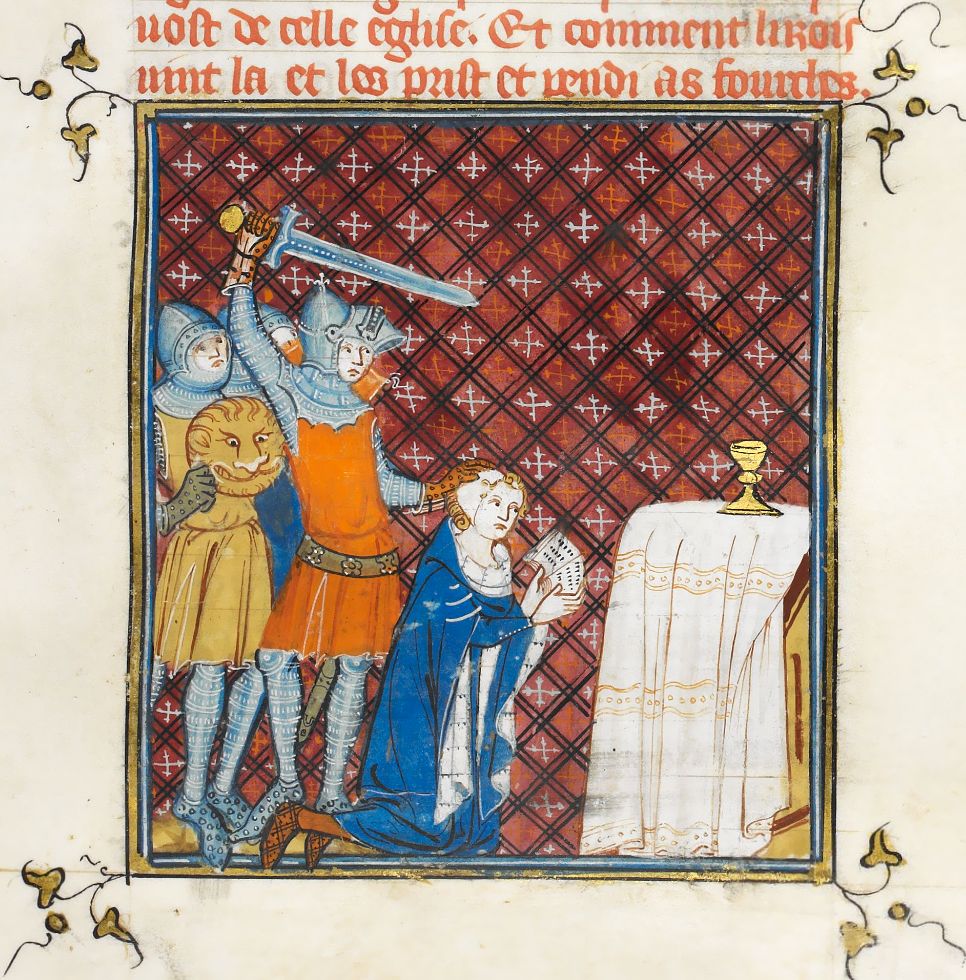Saint Charles the Good
Killed for investigating the unscrupulous rich.

The Flemish count Charles the Good was stabbed to death in 1127, in the church of St. Donatian in Bruges, by a man called Borsiard.
Borsiard was a member of a wealthy family whose commercial power Charles was attempting, through various legal means, to curtail. Charles knew this made him a target, but he wouldn’t pardon the robber barons just to save his own neck. “If [Borsiard] wishes to find the mercy he seeks, he should restore justly everything he has unjustly stolen,” Charles said. “For by what reckoning can he obtain forgiveness and keep what he has stolen from the poor?”
Jeff Rider is a modern-day professor at Wesleyan, and he tells an especially moving version of the count’s murder in his book God’s Scribe, which I’m happy to quote from here. Exactly 894 years ago today, Rider writes, Charles began his usual prayers at an altar to the Virgin Mary:
From time to time Charles took a silver penny from the small pile his chaplains had placed on the psalter and gave it to a pauper whom they had led to his side. As he was reciting the fourth psalm, he reached out his right hand to give a penny to a poor woman whose turn had finally come. As he did so, he felt a light tap on the left side of his head and the woman cried out: ‘Lord count, look out!’ He turned his head to the left and looked up, but he may never have seen Borsiard or the sword that crushed his forehead and ‘knocked his brains out on to the floor.’